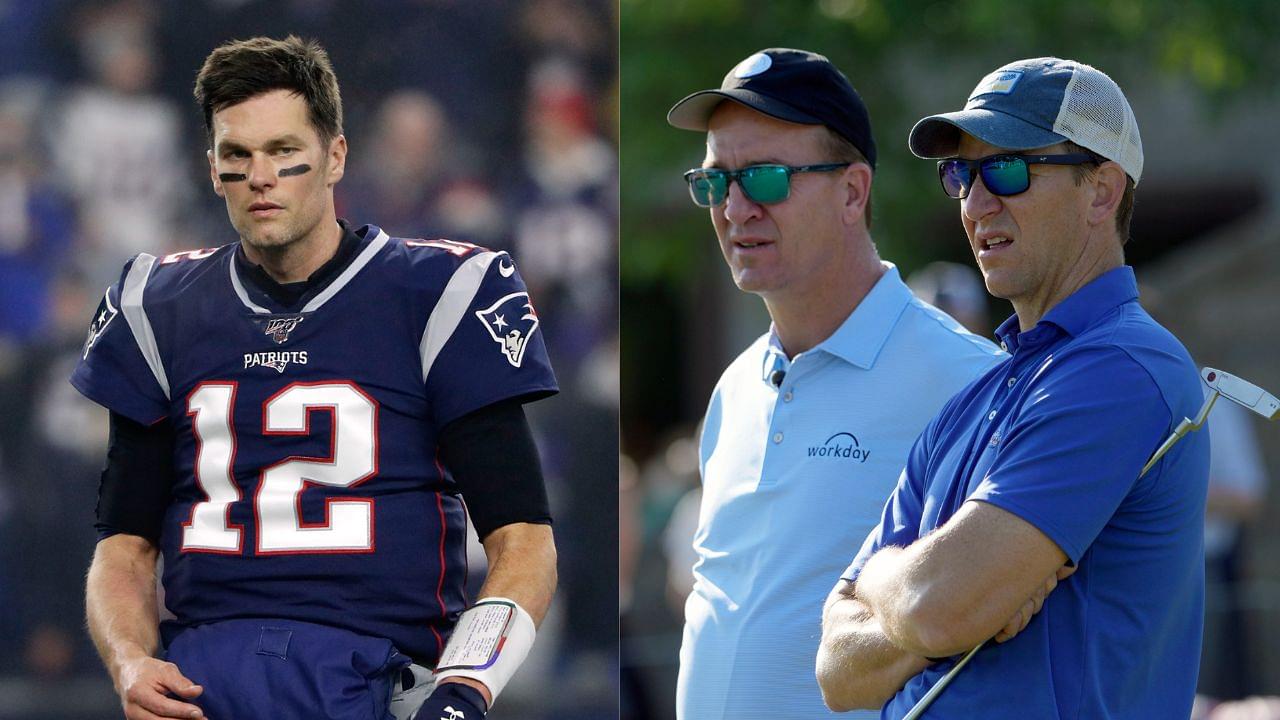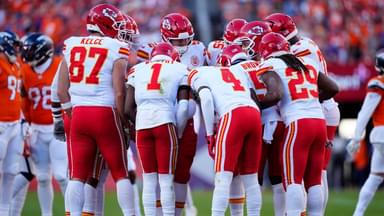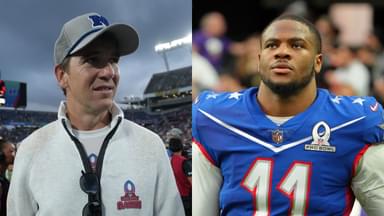This disclosure not only adds a fascinating twist to the ex-Broncos QB’s illustrious career, marked by five NFL MVP awards and two Super Bowl triumphs, but also intertwines the legacies of two of football’s greatest quarterbacks: Peyton Manning and Tom Brady.
Advertisement
What started as a resounding signal in the line of scrimmage has transformed into a cultural phenomenon, even inspiring the name of Peyton’s entertainment company. In the interview, the ex-Giants QB revealed that the renowned play call was indirectly stolen from Peyton’s arch-rival, Tom Brady.
Did Peyton Manning Steal His Signature Call From Tom Brady?
Eli Manning, on The Dan Patrick Show, finally unraveled the mystery. It turns out that this iconic call wasn’t an original creation of the Sheriff but rather a clever adaptation from none other than Tom Brady’s playbook. Eli said,
“I used Omaha way before Peyton ever used it. He stole it. He stole it. It was in our playbook, and he used it the exact same way.”
According to Eli, the ‘Omaha’ call was first incorporated into the Giants’ offense back in 2004 by offensive coordinator John Hufnagel, who previously worked with Brady in New England.
.@EliManning sets the record straight that he actually used the audible call “Omaha” WAY before his brother Peyton. And admits that he technically stole it from @TomBrady.
Eli’s full appearance: https://t.co/9jEv1ojNJG pic.twitter.com/SXXEJoMph4
— Dan Patrick Show (@dpshow) November 9, 2023
Eli amusingly admits to “stealing” the call from Brady, only for Peyton to later adopt it. Notably, the call gained widespread attention during the 2015 playoffs, when players were allowed to use microphones during games.
The Manning brothers, both celebrated for their on-field prowess, now share a quirky anecdote that ties their legacies together with Brady’s. Moreover, Peyton’s adept use of ‘Omaha’ beyond the field, branding his production company with it, shows his savvy in leveraging on-field strategies into off-field successes.
Eli Manning‘s recent disclosure concerning the ‘Omaha’ play call introduces an engaging new chapter in the ongoing narrative of competition and camaraderie between the former NFL stars. This insight into the origins of the call highlights the vibrant and shifting nature of strategies within NFL games.







